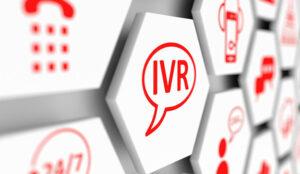Liz Doig of Wordtree sets out how the words you use can reassure customers while they’re waiting – and help them understand exactly the kind of support you’re going to be able to offer.
1. Be Real
It’s not just customers who are living through these strange times – we all are. And there’s a temptation when we’re scared and under pressure to fall back on out-of-the-box phrases and bits and pieces of language.
How many times in the past few days have you heard or seen the expression: “Due to unprecedented demand…” for example?
But most people in their day-to-day lives don’t use words like this.
On top of this is the fact that when people are stressed, their ability to understand and process information goes down. Which means the out-of-the-box wording that everyone else is using isn’t necessarily the most helpful.
To test the words that would be most helpful, think of what you would say to your mum, flatmate or friend – and use those instead.
| Less Helpful | More Helpful – and Has Greater Impact |
|---|---|
| We are currently experiencing unprecedented demand for our services. Please check our website for the latest information on deliveries. | Please go to our website for information about deliveries.We’re not trying to put you off calling – we just have thousands of people trying to get through right now. So you might have a long wait to speak to someone.
If you’d like to listen to this message again, press one. |
The first version feels like a brush-off. By keeping it real, the second version feels more honest – and gives customers a feel of how hard you’re working, despite the circumstances.
For more on using psychology to clear up your contact centre communication, read our article: Customer Psychology: The Key to Better Contact Centre Conversations
2. Be Directive
Most of us are proud of being polite. In addition, many of us work in corporate environments where getting buy-in and consensus is the standard way of doing business.
Which means that no one goes into a meeting room and says anything like: “We have a problem; this is how we’re going to sort it. You – do this now. You over there – you must do this. Right now!”
Can you imagine? You’d have an interview with HR to talk about your “confrontational behaviour” before you’d even got back to your desk.
But here’s the thing – in times of crisis, people look to those in authority for direction. And the organization you work for is an authority. So it’s in everyone’s best interests for you to be clear, direct and directive.
This isn’t a corporate meeting, and you aren’t being impolite for telling people exactly what you need them to do.
| Less Helpful | More Helpful – and Has Greater Impact |
|---|---|
| Thank you for calling ABC Hospital.Due to the current, unprecedented situation we are kindly requesting that our customers refrain from attending our hospitals. We are therefore cancelling all non-emergency appointments and would request that you book a virtual consultation. Thank you for your understanding at this difficult time. | You are through to ABC Hospital. Please listen carefully.DO NOT COME TO OUR HOSPITALS – EVEN IF YOU HAVE AN APPOINTMENT.
Instead, you must re-book a virtual appointment on our website. This will allow you to talk to a doctor by video conference. Thank you for your understanding. If you’d like to listen to this message again, press one. |
The first version is super-polite – but it might be confusing. Is their appointment with a consultant cardiologist a fortnight after their heart attack an emergency or not?
The second version leaves no room for confusion and gives clear instructions about what to do next.
For more advice on being direct in your contact centre communication, read our article: The Best Power Words and Phrases to Use in Customer Service
3. Allow Customers to Hear Your Message Again
People who are stressed don’t always listen properly. This is because when we’re upset, angry, frustrated or scared, our bodies flood our systems with fight or flight hormones.
Hormones divert energy from non-essential activities. like paying attention to fine detail…
These hormones divert energy from non-essential activities. like paying attention to fine detail, so that all the body’s resources can be available for fighting or running.
For this reason, doctors often record the conversations they have with patients when they’re giving them a worrying diagnosis. They know that their frightened patient may not be able to take in everything they’re saying. So they give them the recording to take home and listen to again, so they have all the information they need.
So as counter-intuitive as it may seem (because with so many people calling in, it might feel like we need to get people off phone lines as quickly as possible), it’s not a bad idea to let people hear your recorded message again – just so they know exactly what’s going on. This is because even low levels of stress can result in a reduced ability to absorb and process information.
If you need people to stay away, go to your website or place their order in a different way, give them an opportunity to understand fully the first time they call.
Find more tips like this one in our article: 19 Ways to Create a Great IVR Experience
4. Reduce Clutter in Written Messages
If you want people to understand first time, strip your message back to its essentials.
For example, scientists know that there are several types of coronavirus. But your customer is only interested in one of them right now.
With this in mind, ignore the little voice in your head that says you’ll look more scientific and serious if you specify exactly which virus you’re talking about. Because if you do this, you’re just introducing more stuff for stressed brains to have to process.
So, get rid of the brackets and capital letters. In fact, there’s often no need to mention the virus by name at all. People know which crisis and which virus you’re writing about.
| Less Helpful | More Helpful – and Has Greater Impact |
|---|---|
| It is with very heavy hearts that we announce the temporary closure of XYZ Hotel Chain, effective 26 March until further notice.It is not a decision we’ve taken lightly, but rather due to the uncertainty of the rapidly changing global coronavirus (COVID-19) pandemic and recent Government restrictions of movement for the safety of our wider community.
The well-being and safety of our guests, team, and our community is always our absolute priority and as future changes are unforeseeable, we continue to evolve our response for the welfare of all. During this time our team continues to be at your service for enquiries. |
We’re truly sorry to announce the temporary closure of XYZ Hotel Chain.We will shut on March 26 until it’s safe to open again.
This has been a difficult decision in difficult times – but the well-being of our guests, our team and our community has to come first. If you want to call us with questions or future bookings, we will be more than happy to help. Stay safe – and we hope to see you again really soon. |
People will feel closer to organizations that helped them to navigate strange times by giving them easy-to-digest information.

Liz Doig
Thanks to Liz Doig at Wordtree for sharing this article with us.
For more expert advice on how to improve your IVR messages during this difficult time, read our articles:
- How to Write the Best IVR Messages – With Examples
- 43 Things You Should NOT Do With Your IVR Messages
- How to Write an IVR Script – With an Example
Author: Liz Doig
Published On: 1st Apr 2020 - Last modified: 24th Jun 2024
Read more about - Technology, Coronavirus, Editor's Picks, IVR Solutions, Language, Liz Doig




































